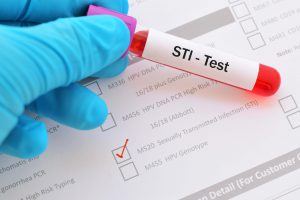Be STI Smart: Sexual Health Awareness Week
The Sexual Health Awareness week raises awareness about important sexual issues from Consent to Contraception. Find out more about this year’s topic here.
Today we will be discussing STI’s, their common symptoms and what you should do if you are worried about having an STI. STI’s – Sexually Transmitted Diseases, are passed on to others through intercourse with an infected person, without protection. STI’s are usually treatable, but some conditions are not which is why it is so important to get tested before having unprotected sex and passing it on.
The Most Common STI’s
• Chlamydia
Symptoms for Chlamydia include: Pain when peeing, Unusual discharge, Bleeding after sex (in women), or Swelling of the testicles (in men)
• Gonorrhoea
Symptoms for Gonorrhoea include: A thick green or yellow discharge, Pain when peeing and Bleeding After sex (in women) – However Gonorrhoea can be symptomless!
• Trichomoniasis
Symptoms for Trichomoniasis include: Pain when peeing, Unusual discharge, Inflammation or itching around the vagina (in women) or Swelling of the penis (in men)
• Genital Warts
Symptoms for Genital Warts include: Painless lump or lumps around genitals, Itching or bleeding genitals or A change in your flow of pee
• Genital herpes
Symptoms for Genital Herpes include: Blistering around genitals, Burning or itching genitals, Pain when you pee, Unusual discharge (in women) – Be aware that blistering can take months to appear so get checked if they appear.

What should you do if you think you have an STI?
If you are experiencing any of these symptoms or recently had unprotected sex it is best to talk to a doctor and get tested! Many STI’s have no symptoms at all so it is always best to speak to a Doctor if you’re concerned.
If you don’t want to wait to see your GP, speak to a Doctor today with the GP Service. Our Doctors are registered professionals who will give you expert advice on the next steps to take.
Find Out More Here



